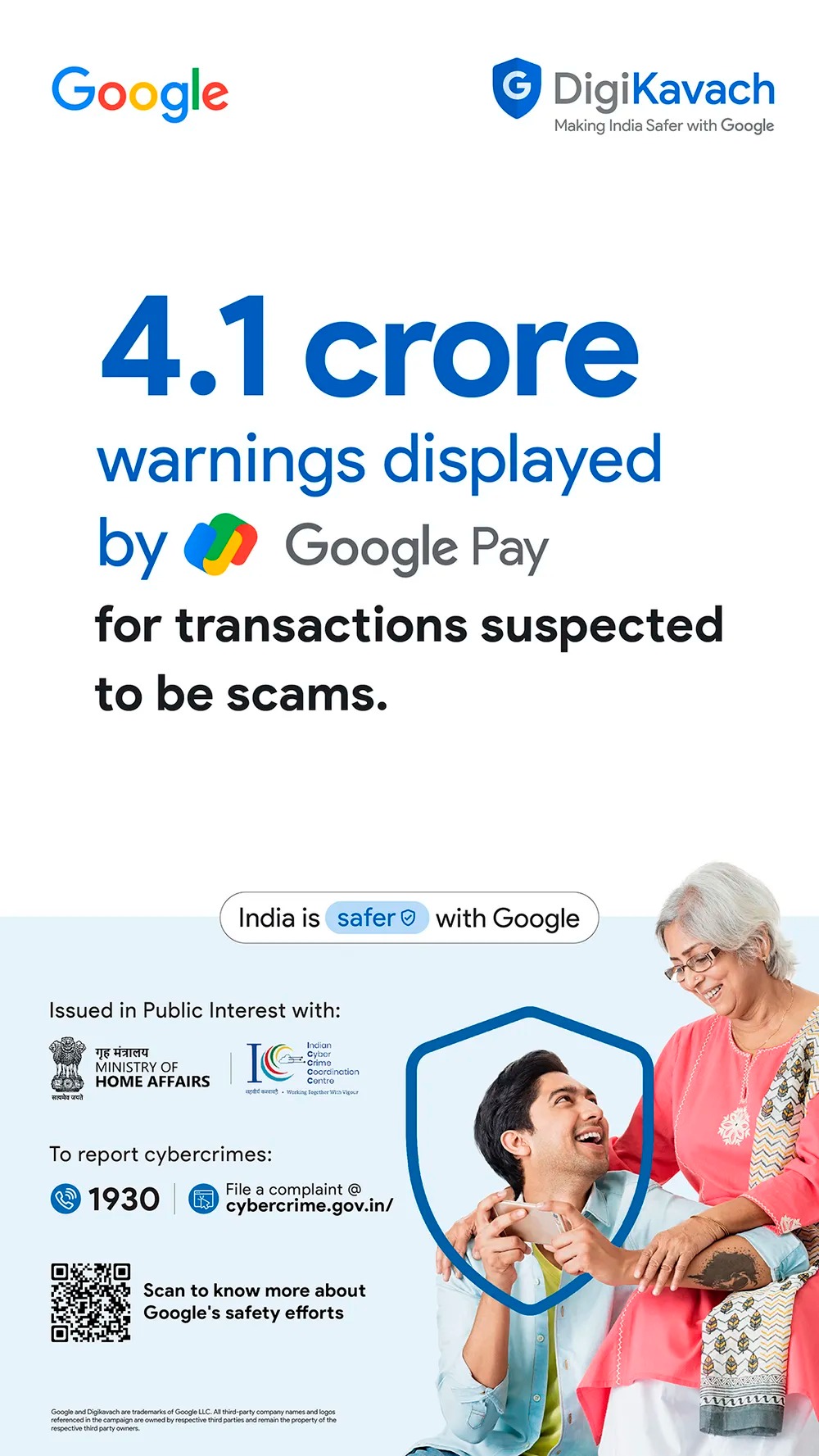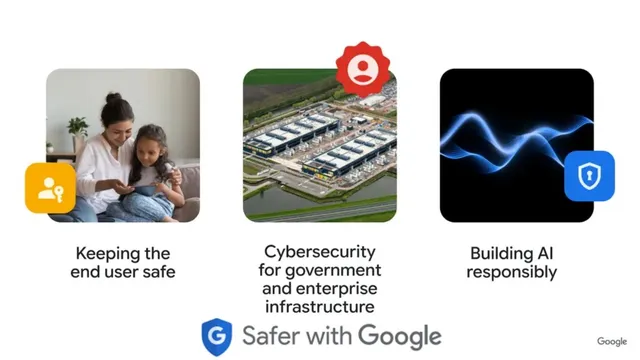- By Alex David
- Tue, 17 Jun 2025 02:01 PM (IST)
- Source:JND
Today, Google launched an extensive Safety Charter designed expressly for India's AI-led future, with the aim of deepening the trust people place in the country's fast-expanding digital economy. While affordable internet, smooth payment systems, and a growing array of online services continue to lift millions, confidence in those systems is still the one thing that makes all other progress possible.
As artificial intelligence moves from the background to the foreground of everyday online experience, the Safety Charter lays out a concrete plan for keeping that confidence steady. The framework rests on three guiding pillars – user safety, cybersecurity, and responsible AI-none of which can be optional if India's digital landscape is to remain secure, resilient, and open to everyone.
Strengthening User Safety Amid Growing Online Threats
India has already seen a sharp increase in online scams, fed by tactics such as AI-generated texts, deepfake videos, and nearly perfect voice cloning. In 2024 alone, UPI-related frauds cost users more than ₹1,087 crore, and if the trend continues, Indian companies could bleed as much as ₹20,000 crore in 2025.
To tackle the problem, Google's DigiKavach combines built-in protections with down-to-earth user training. Scam resilience, the firm explains, comes from pairing on-device defences with an informed public. The initiative has reached 177 million people so far, teaching them how to spot new fraud schemes before they appear in their inbox.
In cooperation with India's Ministry of Home Affairs and the Cyber Crime Coordination Centre (I4C), Google is broadening its anti-fraud initiatives nationwide. In 2024 the firm deleted 247 million ads and suspended 2.9 million accounts under its tough Financial Services Verification rule, a move that slashed fake financial promotions.
AI-Driven Protections Across Google Platforms
Artificial intelligence now powers nearly every Google surface, spotting and stopping harmful activity far faster than people ever could.
Search
Thanks to large language models, Google flags 20 times more risky web pages before they load for users. Worldwide, impersonation campaigns-fake customer-service portals and counterfeit government sites-have fallen by 80 percent and 70 percent, respectively.
Android & Messages
On Android devices, the system blocks more than 500 million fraudulent texts each month and has shown 2.5 billion warnings about dubious links, all done locally to protect privacy.
Google Play
Since launching a Play Protect pilot in India in October 2024, Google has stopped almost 60 million attempts to install dangerous apps on 13 million devices, covering over 220,000 unique threats.
Google Pay
Users received over 41 million alerts that pointed out suspicious transactions, giving them greater confidence every time they spend.

Gmail
Gmails built-in filters already zap more than 99.9 percent of spam, phishing notes, and malware before they ever reach a users inbox.
Enhancing Cybersecurity for Public and Enterprise Infrastructure
As attacks grow sharper, Google is shoring up digital defenses with AI, joint research, and carefully targeted investments.
“Our products are secure-by-design and secure-by-default,” Google affirms. These principles guide Google's mission to help governments and businesses stay ahead of digital threats.
Threat Intelligence
The Google Cloud M-Trends Report, compiled with Mandiant, highlights key patterns in cyber incursions-from ransomware to cloud breaches.
AI in Vulnerability Detection
In an industry first, engineers from Googles Project Zero and DeepMind relied on machine learning to spot an unpatched flaw in SQLite, proving AI can strengthen everyday software security.
Supporting SMBs
Through Google.org the firm is donating 5 million to The Asia Foundation, a project that widens cybersecurity clinics across the Asia-Pacific and links Indian universities with MSMEs and students.
Quantum Cryptography Research
Working with IIT Madras, Google is pushing Post-Quantum Cryptography (PQC) forward so future online communications stay private even in a quantum world.
Building and Scaling Responsible AI
Google seeks to create artificial intelligence tools that are safe, clear in their workings, and designed for Indias wide-ranging cultures and needs.
Values-Based AI
In India, both businesses and public offices shape their online services around responsible AI ideas. To keep work steady across groups, Google uses a home-grown risk map that matches its AI Principles.
Rigorous Testing & Red Teaming
The company constantly probes its models through adversarial tests and AI-powered Red Teams, letting synthetic agents stage mock assaults so real dangers can be spotted early.
Content Responsibility
To lift openness, Google rolled out SynthID, a watermark system now sealed into more than ten billion files. It also demands clear AI credits on YouTube, flags machine-made pictures in Search, and added Geminis double-check button to ease fact checking.
Localization for India
Gemini Language Testing and IndicGenBench fine-tune models for twenty-nine Indic tongues, aiming to give every region fair access and respect its local culture.
ALSO READ: WhatsApp Getting Ads, But Private Chats Stay Ad-Free: Here’s Everything You Need To Know
Collaboration Is Key: Safety Is a Shared Responsibility
Google emphasizes that safeguarding India’s digital economy is not a solo effort. “Safety is a shared responsibility,” the company states.
By teaming up with agencies such as the Department of Telecom, the Ministry of Home Affairs, and the Securities and Exchange Board of India, Google seeks a coordinated defense against cyber threats. Programs like Global Signals Exchange and Partnering for Protection make it easier for different sectors to share information about attackers and scams. .
Google’s Safety Charter is both a commitment and a call to action—for all stakeholders to partner in shaping a secure, AI-powered digital future. “It is equally a call for the wider ecosystem to rally, partner and collaborate with us,” Google concludes. “We are committed to sharing the best of our expertise and experience towards this effort.”

